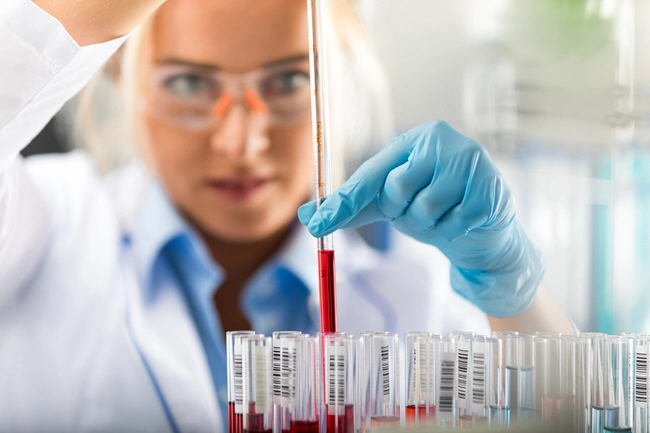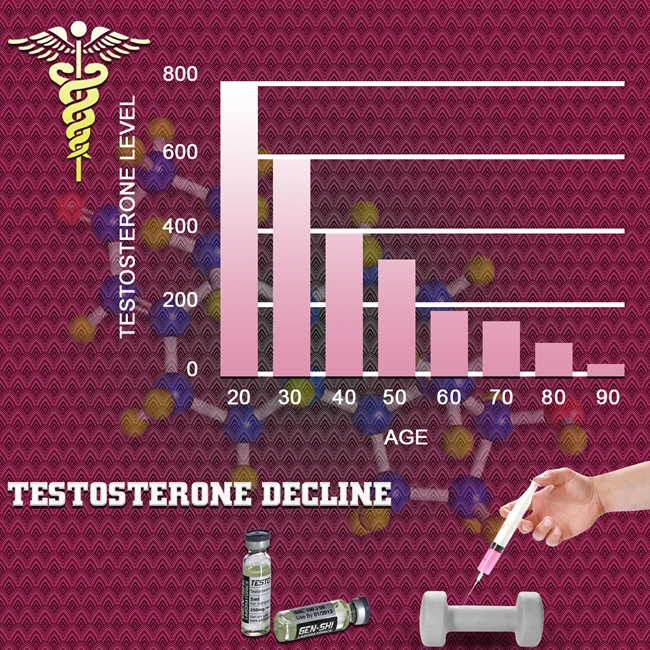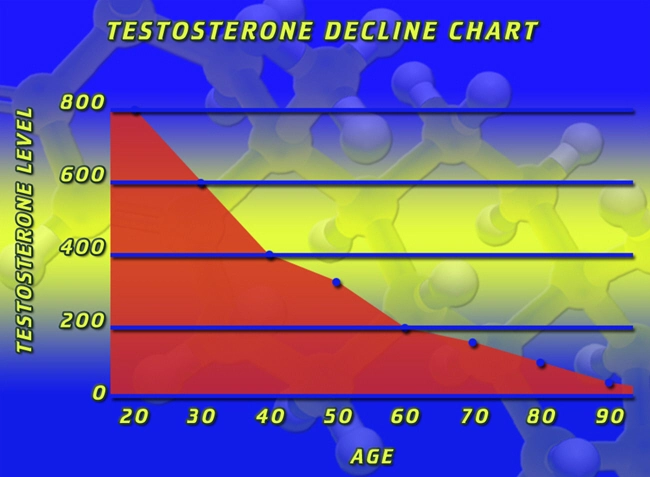
Introduction to Testosterone Replacement Therapy
Testosterone replacement therapy (TRT) has become a popular treatment option for men experiencing low testosterone levels, a condition known as hypogonadism. As American men increasingly seek solutions to improve their quality of life, understanding the potential side effects of TRT is crucial. This article delves into the various side effects associated with testosterone therapy, providing a comprehensive guide for those considering this treatment.
Common Side Effects of Testosterone Therapy
Testosterone therapy can lead to a range of side effects, some of which are more common than others. One of the most frequently reported side effects is acne, which can occur due to increased oil production stimulated by testosterone. Additionally, men may experience fluid retention, leading to swelling in the ankles or feet. Another common side effect is an increase in red blood cell count, which can thicken the blood and potentially increase the risk of blood clots.
Hormonal Imbalances and Their Effects
TRT can disrupt the body's natural hormonal balance, leading to a decrease in sperm production and, consequently, infertility. This side effect is particularly concerning for men who are planning to start a family. Furthermore, testosterone therapy can lead to an increase in estrogen levels, as some testosterone is converted to estrogen in the body. Elevated estrogen levels can cause gynecomastia, or the development of breast tissue in men, which can be distressing and may require additional treatment.
Cardiovascular Risks Associated with TRT
Recent studies have raised concerns about the potential cardiovascular risks associated with testosterone therapy. Some research suggests that TRT may increase the risk of heart attack, stroke, and other cardiovascular events, particularly in men with pre-existing heart conditions. However, the evidence is not conclusive, and more research is needed to fully understand the relationship between testosterone therapy and cardiovascular health.
Mood and Behavioral Changes
Testosterone plays a significant role in mood regulation and behavior. While some men report improved mood and increased energy levels with TRT, others may experience mood swings, irritability, or even aggression. These changes can impact relationships and overall quality of life, making it essential for men to discuss any mood or behavioral changes with their healthcare provider.
Long-Term Effects and Monitoring
The long-term effects of testosterone therapy are still being studied, and it is crucial for men undergoing TRT to be monitored regularly by their healthcare providers. Regular blood tests can help monitor hormone levels, red blood cell count, and other important markers. Additionally, men should be aware of potential long-term risks, such as the development of prostate cancer, although the evidence linking TRT to prostate cancer is not definitive.
Mitigating Side Effects and Ensuring Safe Use
To minimize the risk of side effects, it is essential for men to work closely with their healthcare providers when considering testosterone therapy. A thorough evaluation, including a review of medical history and current medications, can help determine if TRT is appropriate. Men should also be educated about the potential side effects and the importance of regular monitoring. In some cases, adjusting the dosage or switching to a different form of testosterone delivery, such as gels or patches, may help reduce side effects.
Conclusion: Weighing the Benefits and Risks
Testosterone replacement therapy can offer significant benefits for men with low testosterone levels, improving energy, mood, and overall quality of life. However, it is crucial for American men to be aware of the potential side effects and risks associated with TRT. By working closely with healthcare providers and staying informed, men can make well-informed decisions about their treatment options and take steps to minimize the risk of side effects. As research continues to evolve, it is essential for men to stay up-to-date on the latest findings and guidelines related to testosterone therapy.
Contact Us Today For A Free Consultation
Dear Patient,
Once you have completing the above contact form, for security purposes and confirmation, please confirm your information by calling us.
Please call now: 1-800-380-5339.
Welcoming You To Our Clinic, Professor Tom Henderson.

- Testosterone Replacement Therapy: Impacts on Mental Health in American Men [Last Updated On: March 14th, 2025] [Originally Added On: March 14th, 2025]
- American Men's Experiences with Testosterone Replacement Therapy: Benefits and Challenges [Last Updated On: March 16th, 2025] [Originally Added On: March 16th, 2025]
- Navigating Insurance Coverage for Testosterone Replacement Therapy in American Males [Last Updated On: March 17th, 2025] [Originally Added On: March 17th, 2025]
- Economic Impact of Testosterone Replacement Therapy on U.S. Healthcare System [Last Updated On: March 17th, 2025] [Originally Added On: March 17th, 2025]
- Testosterone Replacement Therapy: Enhancing American Males' Health and Vitality [Last Updated On: March 18th, 2025] [Originally Added On: March 18th, 2025]
- TRT: Benefits and Prostate Health Risks for American Men [Last Updated On: March 19th, 2025] [Originally Added On: March 19th, 2025]
- Future of TRT: Innovations, Safety, and Personalized Medicine in the U.S. [Last Updated On: March 19th, 2025] [Originally Added On: March 19th, 2025]
- Testosterone Replacement Therapy: Dosage, Administration, and Holistic Management for American Males [Last Updated On: March 20th, 2025] [Originally Added On: March 20th, 2025]
- TRT's Impact on Sleep Quality: Insights for American Males [Last Updated On: March 21st, 2025] [Originally Added On: March 21st, 2025]
- Testosterone Replacement Therapy: Benefits, Risks, and Management for Young American Men [Last Updated On: March 21st, 2025] [Originally Added On: March 21st, 2025]
- TRT: Enhancing Cognitive Function in American Men with Low Testosterone [Last Updated On: March 21st, 2025] [Originally Added On: March 21st, 2025]
- Maximizing TRT Benefits: Diet, Exercise, and Holistic Health for American Men [Last Updated On: March 21st, 2025] [Originally Added On: March 21st, 2025]
- TRT Enhances Bone Health in American Males: Benefits and Considerations [Last Updated On: March 22nd, 2025] [Originally Added On: March 22nd, 2025]
- Exploring TRT: Medical Benefits vs. Cultural Stigma in American Men [Last Updated On: March 22nd, 2025] [Originally Added On: March 22nd, 2025]
- Enhancing TRT Outcomes with Alternative Therapies for American Men [Last Updated On: March 22nd, 2025] [Originally Added On: March 22nd, 2025]
- Optimizing Testosterone Replacement Therapy: Monitoring and Adjustments for American Males [Last Updated On: March 22nd, 2025] [Originally Added On: March 22nd, 2025]
- Managing Side Effects of Testosterone Replacement Therapy: A Comprehensive Guide [Last Updated On: March 23rd, 2025] [Originally Added On: March 23rd, 2025]
- TRT: A Comprehensive Guide to Weight Management for American Males [Last Updated On: March 23rd, 2025] [Originally Added On: March 23rd, 2025]
- Testosterone Replacement Therapy: Enhancing Mood in American Males [Last Updated On: March 24th, 2025] [Originally Added On: March 24th, 2025]
- Testosterone Replacement Therapy: Combating Fatigue in American Men [Last Updated On: March 24th, 2025] [Originally Added On: March 24th, 2025]
- TRT's Impact on Cardiovascular Health in American Men: Risks, Benefits, and Guidelines [Last Updated On: March 24th, 2025] [Originally Added On: March 24th, 2025]
- TRT's Impact on Cognitive Function and Mental Clarity in American Men [Last Updated On: March 24th, 2025] [Originally Added On: March 24th, 2025]
- TRT's Impact on Immune Function in American Men: Benefits and Considerations [Last Updated On: March 24th, 2025] [Originally Added On: March 24th, 2025]
- TRT for American Men: Costs, Benefits, and Access Considerations [Last Updated On: March 24th, 2025] [Originally Added On: March 24th, 2025]
- Testosterone Replacement Therapy: Enhancing Emotional Well-being in American Men [Last Updated On: March 24th, 2025] [Originally Added On: March 24th, 2025]
- TRT's Impact on Digestive Health in American Men: A Comprehensive Review [Last Updated On: March 24th, 2025] [Originally Added On: March 24th, 2025]
- TRT: Enhancing Injury Recovery in American Males Through Muscle, Bone, and Psychological Benefits [Last Updated On: March 25th, 2025] [Originally Added On: March 25th, 2025]
- Testosterone Replacement Therapy: Benefits, Risks, and Realistic Expectations for Men [Last Updated On: March 25th, 2025] [Originally Added On: March 25th, 2025]
- Low Libido in American Males: Understanding TRT Benefits and Risks [Last Updated On: March 25th, 2025] [Originally Added On: March 25th, 2025]
- Testosterone Replacement Therapy: Enhancing Muscle Mass in American Men [Last Updated On: March 25th, 2025] [Originally Added On: March 25th, 2025]
- Testosterone Replacement Therapy: Benefits, Risks, and Management for Aging American Males [Last Updated On: March 25th, 2025] [Originally Added On: March 25th, 2025]
- TRT: Balancing Testosterone Therapy and Male Fertility Preservation Strategies [Last Updated On: March 26th, 2025] [Originally Added On: March 26th, 2025]
- TRT and Hair Loss: Understanding Risks and Mitigation Strategies for American Men [Last Updated On: March 26th, 2025] [Originally Added On: March 26th, 2025]
- TRT Benefits for Skin Health in American Males: Hydration, Elasticity, and Risks [Last Updated On: March 26th, 2025] [Originally Added On: March 26th, 2025]
- TRT's Impact on Kidney Function: Risks and Benefits for American Males [Last Updated On: March 26th, 2025] [Originally Added On: March 26th, 2025]
- TRT Enhances Joint Health in American Males: Benefits and Considerations [Last Updated On: March 26th, 2025] [Originally Added On: March 26th, 2025]
- Testosterone Replacement Therapy: Benefits, Risks, and Holistic Health for American Men [Last Updated On: March 26th, 2025] [Originally Added On: March 26th, 2025]
- TRT: Enhancing Stamina in American Males with Hypogonadism [Last Updated On: March 26th, 2025] [Originally Added On: March 26th, 2025]
- TRT: Enhancing Life Quality for American Males with Hypogonadism [Last Updated On: March 26th, 2025] [Originally Added On: March 26th, 2025]
- TRT's Impact on Vision Health: Benefits, Risks, and Monitoring for American Males [Last Updated On: March 26th, 2025] [Originally Added On: March 26th, 2025]
- Testosterone Replacement Therapy: A Guide for American Males Seeking Vitality [Last Updated On: March 27th, 2025] [Originally Added On: March 27th, 2025]
- TRT's Role in Managing Chronic Pain for American Males: Insights and Considerations [Last Updated On: March 27th, 2025] [Originally Added On: March 27th, 2025]
- TRT's Impact on Diabetes: Benefits, Risks, and Lifestyle Considerations for American Men [Last Updated On: March 27th, 2025] [Originally Added On: March 27th, 2025]
- Testosterone Replacement Therapy: Benefits, Risks, and Latest Research Insights [Last Updated On: March 27th, 2025] [Originally Added On: March 27th, 2025]
- TRT and Liver Health: Risks, Monitoring, and Safe Practices for American Men [Last Updated On: March 28th, 2025] [Originally Added On: March 28th, 2025]
- Testosterone Replacement Therapy: A Promising Treatment for Depression in American Males [Last Updated On: March 28th, 2025] [Originally Added On: March 28th, 2025]
- TRT Boosts Confidence and Well-being in American Males: A Comprehensive Overview [Last Updated On: March 28th, 2025] [Originally Added On: March 28th, 2025]
- TRT: A Holistic Approach to Managing Stress in American Males [Last Updated On: March 28th, 2025] [Originally Added On: March 28th, 2025]
- TRT and Blood Pressure: Monitoring and Management for American Men [Last Updated On: March 28th, 2025] [Originally Added On: March 28th, 2025]
- TRT's Potential Benefits for Respiratory Health in American Men: A Comprehensive Overview [Last Updated On: March 28th, 2025] [Originally Added On: March 28th, 2025]
- Maximizing TRT Benefits: Diet, Exercise, Sleep, and Stress Management for American Males [Last Updated On: March 29th, 2025] [Originally Added On: March 29th, 2025]
- TRT's Impact on Cholesterol: Insights for American Males on Therapy [Last Updated On: April 2nd, 2025] [Originally Added On: April 2nd, 2025]
- TRT's Impact on Blood Sugar Levels in American Men: Benefits and Risks [Last Updated On: April 3rd, 2025] [Originally Added On: April 3rd, 2025]
- TRT's Complex Impact on Thyroid Function in American Men: A Comprehensive Analysis [Last Updated On: April 4th, 2025] [Originally Added On: April 4th, 2025]
- Testosterone Replacement Therapy: Enhancing Health and Vitality in American Males [Last Updated On: April 5th, 2025] [Originally Added On: April 5th, 2025]
- Maximizing TRT Benefits: A Holistic Approach for American Males [Last Updated On: April 6th, 2025] [Originally Added On: April 6th, 2025]
- TRT in American Male Athletes: Performance Benefits and Responsible Use [Last Updated On: April 7th, 2025] [Originally Added On: April 7th, 2025]
- TRT's Impact on Dental Health: Insights for American Men [Last Updated On: April 9th, 2025] [Originally Added On: April 9th, 2025]
- Testosterone Replacement Therapy: Understanding and Managing Allergic Reactions in American Males [Last Updated On: April 9th, 2025] [Originally Added On: April 9th, 2025]
- Testosterone Replacement Therapy: Understanding and Interpreting Lab Results for Optimal Health [Last Updated On: April 9th, 2025] [Originally Added On: April 9th, 2025]
- Exploring TRT's Impact on Social Interactions in American Males [Last Updated On: April 11th, 2025] [Originally Added On: April 11th, 2025]
- Managing Testosterone Replacement Therapy While Traveling: A Guide for American Men [Last Updated On: April 12th, 2025] [Originally Added On: April 12th, 2025]
- TRT's Potential Benefits on Eye Health for American Men: Dry Eye, AMD, and More [Last Updated On: April 12th, 2025] [Originally Added On: April 12th, 2025]
- TRT: Benefits for Low Testosterone vs. Risks to Reproductive Health in American Men [Last Updated On: April 12th, 2025] [Originally Added On: April 12th, 2025]
- Legal Framework and Considerations for Testosterone Replacement Therapy in the U.S. [Last Updated On: April 13th, 2025] [Originally Added On: April 13th, 2025]
- TRT's Impact on Hearing Health in American Males: A Comprehensive Overview [Last Updated On: April 13th, 2025] [Originally Added On: April 13th, 2025]
- TRT Effects on Nail Health in American Men: Growth, Thickness, and Monitoring [Last Updated On: April 14th, 2025] [Originally Added On: April 14th, 2025]
- TRT Boosts Work Performance in American Males: Energy, Mood, and Cognition Enhanced [Last Updated On: April 15th, 2025] [Originally Added On: April 15th, 2025]
- Ethical Considerations in Testosterone Replacement Therapy: Diagnosis, Consent, and Equity [Last Updated On: April 16th, 2025] [Originally Added On: April 16th, 2025]
- TRT's Impact on Neck Health: Benefits and Risks for American Men [Last Updated On: April 17th, 2025] [Originally Added On: April 17th, 2025]
- TRT: Benefits and Risks for Chest Health in American Men [Last Updated On: April 17th, 2025] [Originally Added On: April 17th, 2025]
- Exploring Social Implications of Testosterone Replacement Therapy for American Males [Last Updated On: April 17th, 2025] [Originally Added On: April 17th, 2025]
- TRT Enhances Hand Health: Grip, Bone Density, and Inflammation in American Men [Last Updated On: April 18th, 2025] [Originally Added On: April 18th, 2025]
- TRT: Enhancing Back Health in American Males with Low Testosterone [Last Updated On: April 18th, 2025] [Originally Added On: April 18th, 2025]
- TRT Benefits for American Males: Enhancing Foot Health and Overall Well-being [Last Updated On: April 19th, 2025] [Originally Added On: April 19th, 2025]
- TRT Enhances Cognitive Function and Artistic Expression in American Males [Last Updated On: April 20th, 2025] [Originally Added On: April 20th, 2025]
- Testosterone Replacement Therapy: Psychological Effects and Holistic Management for American Men [Last Updated On: April 20th, 2025] [Originally Added On: April 20th, 2025]








